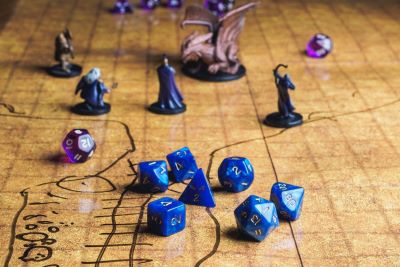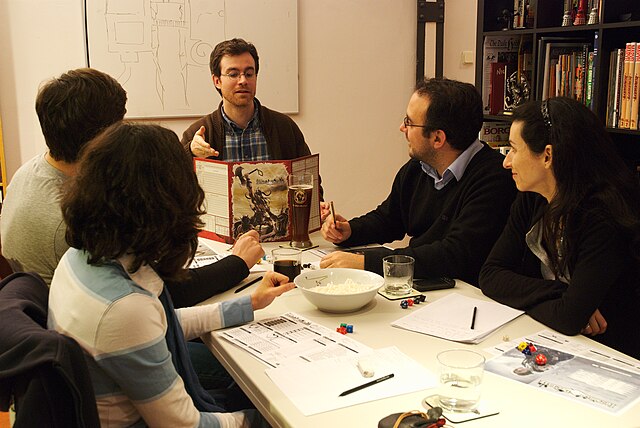Being a Dungeon Master takes a lot of hard work and practice to get the hang of it. So, if you’re a little nervous about taking on this role, try having a practice run. You could write up a short adventure of your own or try running the beginner’s set published by the makers of D&D, The Lost Mines of Phandelver.
Embarking on the journey of becoming a Dungeon Master (DM) takes you into a world of creativity, strategy, and storytelling. Whether you’re a seasoned player or a newcomer to tabletop roleplaying games, taking on the role of the DM can be both exhilarating and daunting. However, the question remains: Is it hard to be a Dungeon Master? Let’s delve into this subject and explore some tips for running a game, even in the unconventional setting of the workplace.
The Challenges of Being a Dungeon Master
Being a DM comes with its unique set of challenges that may intimidate even the most seasoned players. Here are some common hurdles you might encounter:
1. Crafting a Compelling Narrative:
Creating a captivating storyline that keeps your players engaged can be a daunting task. Balancing intrigue, suspense, and player agency requires careful planning and improvisation skills. A good way to start is to keep it simple. A basic easy to follow set up with some fun villains can keep that first session straight forward to run. Additionally, limiting plot complexity allows the players to jump right in tot he action.
2. Managing Player Dynamics:
Each player brings their own personality, playstyle, and expectations to the table. It can be challenging to ensure that everyone feels included and has the opportunity to shine without overshadowing others. One very easy way to achieve this is to move the action from player to player around the table. Making sure no-one gets missed and lettign everyone have regular moments in the spotlight.
3. Rules Mastery:
While it’s essential to understand the rules of the game system you’re playing, being a DM often means making quick decisions on the fly. Striking a balance between adhering to the rules and keeping the game flowing smoothly is key. If the rules feel too complex choose a game with a simpler, pared down ruleset
4. Creative Problem-Solving:
Players are notorious for thinking outside the box, which means you’ll often encounter unexpected scenarios. As a DM, you must be ready to adapt and improvise to keep the game moving forward. As mentioned above, keeping the narrative simple at first gives you more space to improvise around unexpected player solutions. In fact, when I plan a game I set up the scenario premise without considering exactly how the players will actually succeed. This prevents wasting time on excessive planning and keeps the game exciting for me, as the gameplay evolves before my eyes.

Tips for Running a Game at Work
This wouldn’t be DnD at Work without incorporating some element of work related shenanigans. Running a game session in a workplace setting presents its own set of challenges and opportunities. Here are some tips to help you navigate this unique environment:
1. Establish Clear Expectations:
Before diving into the game, communicate with your colleagues about the tone, frequency, and expectations for the sessions. Make sure everyone is on the same page regarding time commitments and player conduct.
2. Keep Sessions Short and Manageable:
Given the busy schedules of most workplaces, it’s essential to keep game sessions concise and focused. Aim for sessions that fit within a lunch break or after-hours time slot to avoid disrupting productivity. Running a couple of encounters over an hour at lunch can be a great way to make sure it doesn’t disrupt the actual work that needs to get done.
3. Foster Collaboration and Teamwork:
Use the game as an opportunity to strengthen bonds and encourage teamwork among your colleagues. Emphasize the importance of cooperation and problem-solving within the context of the game, mirroring real-world workplace dynamics.
4. Be Flexible and Adaptive:
Understand that work-related interruptions or scheduling conflicts may arise unexpectedly. Be flexible and willing to adjust session times or accommodate changes to ensure everyone can participate without feeling overwhelmed.
5. Emphasize Fun and Relaxation:
While RPGs can be intense and immersive, don’t lose sight of the primary goal: having fun! Encourage laughter, creativity, and imaginative storytelling to create a positive and enjoyable experience for everyone involved.
Final Thoughts
Being a Dungeon Master certainly comes with its share of challenges, but with careful planning, adaptability, and a sprinkle of creativity, it’s a role that anyone can excel in. Whether you’re running a game with friends or colleagues in a workplace setting, the key is to foster collaboration, communication, and above all, fun. So gather your party, roll some dice, and embark on an unforgettable adventure together!
Remember, you’ll never get good at it if you never try.

